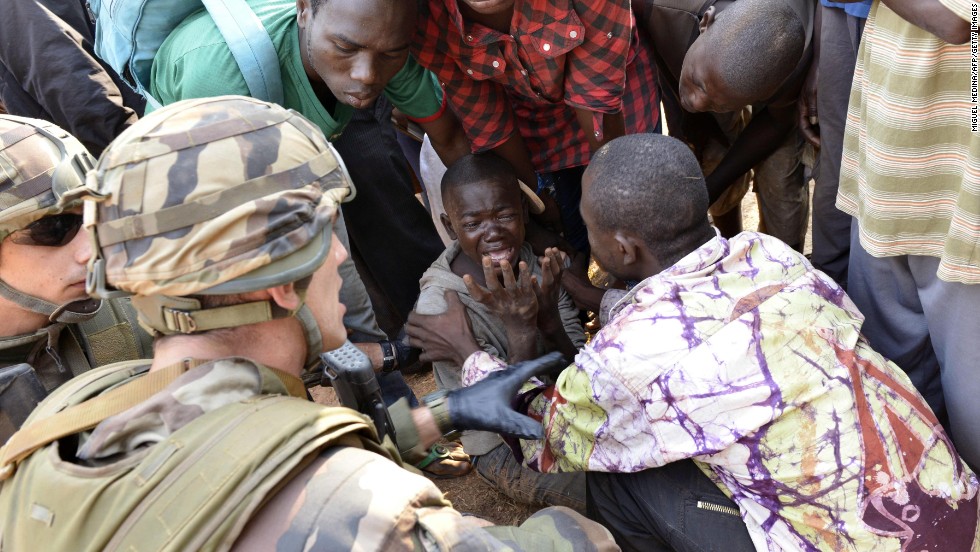Most tears come from the land of Africa
The violence in Laikipia County, at first glance, is sparked by drought-stricken nomads seeking pasture on green farms and wildlife sanctuaries – many of which are owned by White Kenyans, whose claim has colonial roots. . Sprinkle it with cynical local electoral politics, and it got very ugly.
Several voices, ranging from radical nationalists to pragmatists, seem to agree on the need for some sort of land reform, in which people who have little or nothing, or whose lands have been ravaged by the elements, get some land to live. It seems perfectly reasonable; or does he do it?
I used to have strong reformist views on earth, although I don’t think a rough Zimbabwean cut and redistribution is the best way. However, once a Ugandan friend, a very intelligent but quite controversial economist, really shook my perspective on land reform.
It came about during a very moving debate on the resettlement of people displaced by war in northern Uganda. By the time the war that started in 1987 faded in 2005, there were nearly two million internally displaced people (IDPs) living in 251 camps across 11 districts in the region.
The conditions in the IDP camps made the reports heartbreaking in the local and international media. Men whose traditional authority had collapsed in the camps, because they were no longer in the rural economic context where their traditional control over the means of production gave them power over their wives and children, were getting drunk. to death or committed suicide. Domestic violence has reached epidemic levels.
Rape and teenage pregnancy were rife. Trapped in huts, with parents having sex next to their children, many young people have lost their minds. Advertising
There was not a single person who did not believe that bringing people back to their villages and rebuilding their livelihoods had to be done urgently. Except for my friend.
Despite the horrors of the camps, he thought it was always best to leave people there. Rather than dismantle them, he was of the opinion that they should be transformed into more spacious urban settlements, because in the long run people would build a modern life there better than the drudgery of village existence, which is the only one. thing they were. will reinstall itself. In his firm opinion, all land-based settlements; selling it, reforming it, redistributing it or whatever remake anyone could come up with was a lost cause. Pre-colonial land ownership, colonial land grabbing, and post-colonial settlements were all backward.
It was the first time that I had heard someone so completely reject land and reject the closure of camps for internally displaced persons. For him, the men who ruined themselves in the camps, and the women who suffered, were martyrs, soldiers fallen in a war whose end would be glorious for their children. There was no deal on land in Uganda, or anywhere in Africa, that would go well because our attachment to her (and our greed for her) made it nearly impossible for us to act rationally.
The war has ended. The IDP camps have been dismantled and the people of northern Uganda have returned to their homes to plow their gardens and rebuild. It is again a fertile and peaceful region. A few people have made a successful recovery and have become successful farmers. Most did not. And land disputes, sometimes violent, are again frequent in the region.
Not everyone went to the camps during the war. Many people move south, settling along the highway connecting south to north. There was military traffic along the highway and the places along it were relatively safe. The displaced have settled in with the imagination of many migrant communities. They built small businesses along the road and leased local land for commercial farming. Many of them never returned. They became urban and cosmopolitan citizens with little or no connection to the land. Maybe my crazy friend was right.
So what would he say to a problem like Laikipia, who keeps showing his ugly face? I guess it looks like all four possible outcomes are good. Let the nomadic shepherds die with their cattle, and the problem will go away; the nomadic way of life and economy would collapse.
The second option, that of breeders seizing farms and conservatories, would also do the trick. They would build successful new livelihoods on land richer in water and end up using their fortunes to move around and invest in cities.
Third, that the current owners keep it, but with their now risky farms, they will rationalize, sell and go, and the land will be bought by guys who can more effectively create value from the smaller plots. Or fourth, everything is on fire leaving a clean slate to build something more suited to the 21st century.
I suspect the Laikipia ranchers and landowners will agree and be grateful for one thing; that he is neither the President of Kenya nor the Home Secretary.

